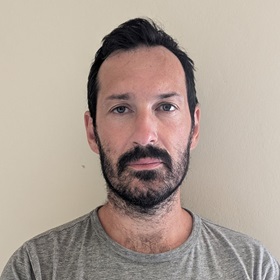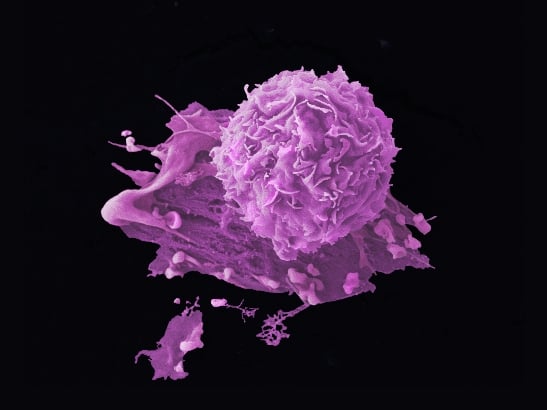Breast Epigenetic Plasticity and Evolution Group
Professor Magnani's group is researching methods to disrupt the adaptive capabilities of Oestrogen Receptor Positive (ER+) Breast Cancer, aiming to inhibit its evolution and thereby prevent relapse in patients receiving endocrine therapies.
Research, projects and publications in this group
(ER+) breast cancer, the most diagnosed human cancer, often relapses years after curative surgery. Our goal is to improve patient outcomes by reducing cancer incidence and drug-resistant relapse.
Professor Luca Magnani
Group Leader:
Breast Epigenetic Plasticity and Evolution
Professor Luca Magnani has spent his career unravelling the complexities of chromatin and epigenetics, from early embryogenesis to cancer drug resistance. Through research roles at various institutions, he's developed critical insights into oestrogen receptor breast cancer, recently focusing on identifying vulnerabilities in dormant cancer cells and strategies to reduce malignancy.
Researchers in this group
 .
.
Email: [email protected]
Location: Chelsea
I graduated with a BSc degree in Biotechnology from The University of Manchester in 2019. I then obtained the Dr Jean Alero Thomas Scholarship to study a master’s degree at Imperial College London, where I explored genomics in human disease. Soon after, I joined the Cebola lab as a Research Technician where I acquired lab experience in molecular biology and genomic analyses. Recently, I obtained an MRC DTP Studentship and have joined Luca Magnani’s lab as a PhD student. My research focuses on elucidating the epigenetic drivers of Endocrine therapy-induced dormancy in hormone-dependent breast cancer. My project is co-supervised by Marco di Antonio from the Department of Chemistry at Imperial College.
 .
.
Email: [email protected]
Location: Chelsea
I studied MSci Bioveterinary science at The Royal Veterinary College, London. After graduation, I gained experience in medical communications, before transitioning back to the lab as a Biomedical Scientist of Haematology in a veterinary pathology lab. My journey at Imperial College London began in a Molecular Endocrinology Lab, as a Research Technician involved in bone and joint phenotyping projects to identify genes associated with osteoporosis and osteoarthritis using mutant mouse models. I am currently a final year MRC DTP PhD student in Professor Luca Magnani’s group, using timelapse imaging and functional genomics to investigate the transcriptional drivers of dormancy in oestrogen receptor positive breast cancer (ERa+ BC) during adaptation to adjuvant therapy. This project is in collaboration with the Department of Mathematics where my co-supervisor Dr Philipp Thomas is based.
Oestrogen Receptor Positive (ER+) breast cancer, the most diagnosed human cancer, often relapses years after curative surgery, a phenomenon lacking mechanistic explanations. Professor Magnani's research hypothesises that dormancy in ER+ cells is an adaptive state preceding cancer transformation and critical during therapy adaptation.
The laboratory has two primary aims:
- devising methods to eliminate dormant ER+ cancer cells during therapy
- unravelling the role of epigenetic changes before tumour transformation.
By exploring these uncharted territories, the research aims to discover novel drug targets and unravel the basic biology driving breast cell transformation and evolution. The ultimate goal is translational, with the potential to reduce cancer incidence and drug-resistant relapse, thereby improving patient outcomes in ER+ breast cancer.
